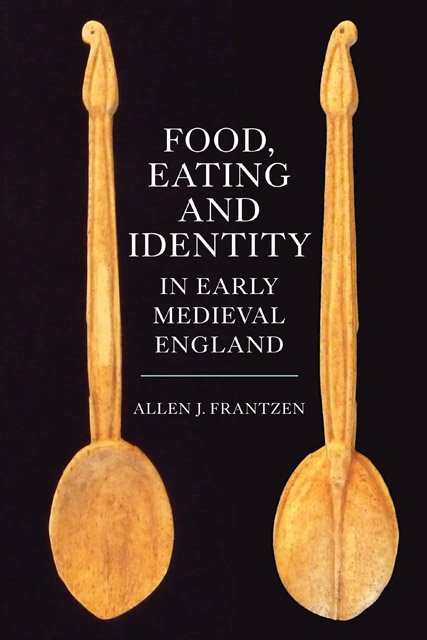6 - Food Objects in Iron
Published online by Cambridge University Press: 14 February 2023
Summary
Simply by virtue of its abundance, pottery contributes to our understanding of Anglo-Saxon identity at many social levels. We can tell that certain forms and fabrics were valued for certain tasks and can see that ordinary wares were sometimes retained when they might have been replaced by newer pots, perhaps because what was ordinary was also familiar and traditional. Ironwork was also ubiquitous in Anglo-Saxon settlements, but not all of it yields insights into social identity. Food objects in iron did not last. When they broke they were not discarded or put to new uses, as were fragments of quernstones or pots, but instead were melted down and refashioned. The old disappeared into the new. Iron had advantages over both pots and querns, however, in that its manufacture was associated with fire and hence with spectacle. As a result, iron and ironworkers were sometimes noticed in narratives that describe how ironwork and ironworkers were understood.
The character of iron
The most famous story about ironworking concerns Bede’s contemporary, Ecgwine, bishop of Worcester, a figure about whom our sources date from the eleventh century and later. A zealous reformer, Ecgwine made many enemies and eventually had to seek support in Rome. Before setting out, he bound himself in fetters and tossed the key into the River Avon. In Rome, he asked his followers to catch a small fish from the Tiber, which they did. When the cook prepared it, he found Ecgwine’s key in the fish’s belly. Freed from his bonds, Ecgwine was absolved of the charges that had burdened him in Worcester. His spiritual integrity now beyond question, he returned there and founded Evesham Abbey; he died in 717.
Accounts of miracles do not usually focus on the ordinary objects – the lock and key – around which the wonders occur. An exception of double value occurs in Adomnan’s Life of St. Columba, in an episode in which Molua, one of the monastic brethren, brings an “implement” for Columba to bless while the saint is copying a manuscript. Without putting down his pen, the saint blesses the object and later asks his servant what implement had been blessed. It was a knife for “the slaughtering of bulls or cattle,” the servant says.
- Type
- Chapter
- Information
- Food, Eating and Identity in Early Medieval England , pp. 132 - 155Publisher: Boydell & BrewerPrint publication year: 2014

